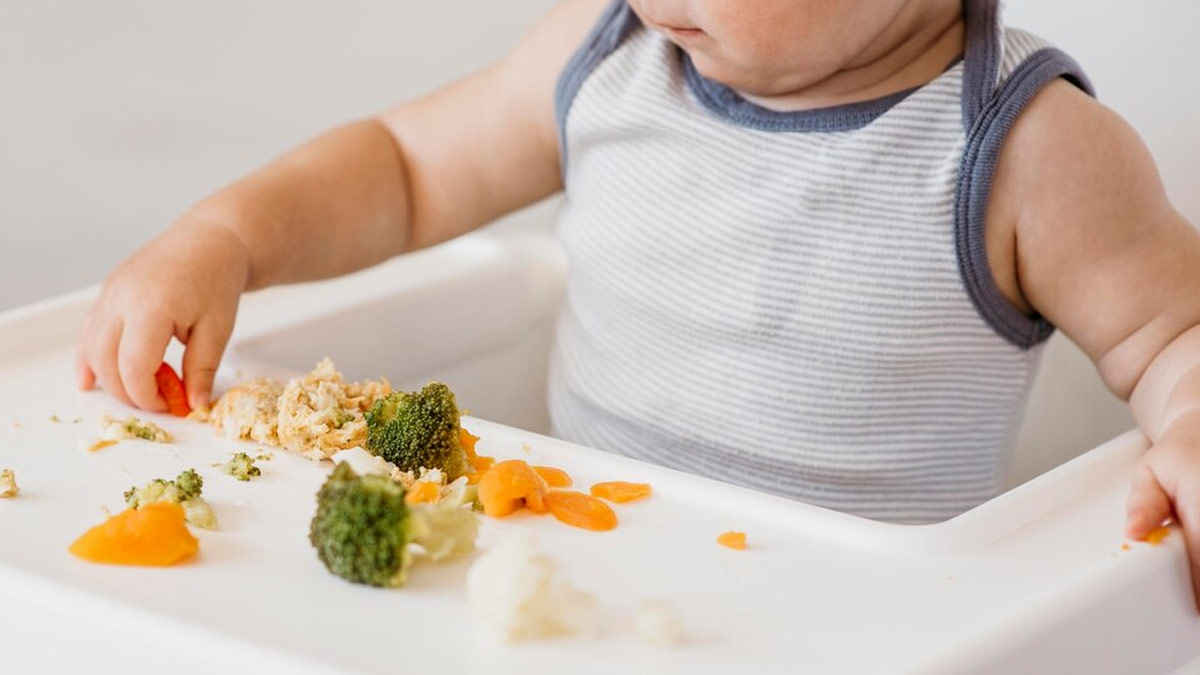
A tiny scratch or sudden changes in an infant's behaviour can cause a lot of concern for parents. It can be even more alarming if babies stop eating or make a fuss during their mealtime. In most cases, appetite loss is temporary and harmless; however, if it continues, parents should try to understand the underlying cause.
Table of Content:-
In babies, changes or loss of appetite can stem from various factors, including teething, which typically begins around six months but can start as early as three months or as late as 12 months, explains Dr Rahul Verma, Director - Neonatology and General Paediatrics, Sir H.N. Reliance Foundation Hospital. During teething, a baby’s first set of teeth emerges, causing discomfort and various symptoms, he says, adding that identifying whether teething is affecting your baby’s food intake and knowing how to address it can help alleviate concerns and ensure your baby stays healthy.
Also Read: Breech Baby: Know The Causes And Treatment
How To Know If Loss Of Appetite Is A Sign

When it comes to infant teething, it typically lasts 3-6 months, according to Dr Verma. To identify whether or not your baby’s appetite loss is a sign of teething, you can watch out for other signs and symptoms, which include:
- Pain and irritability
- Swollen or tender gums
- Drooling
- Chewing on objects
- Sleep disruptions
- Mild fever; this may be due to putting unclean things in their mouths, which predisposes them to infections.
- Diarrhoea
It is necessary to note that not all babies experience a loss of appetite during teething. In fact, reports suggest that only about one-third of teething babies lose their appetite.
How To Manage Teething In Babies

For parents who are concerned about their babies teething journey, here’s how you can ease their symptoms and relieve pain:
- Massaging your baby’s gums with a clean finger can help alleviate discomfort.
- Offer your baby a chilled teething ring or toy to chew on. Cool, chewy foods like carrots can relieve and distract older babies who are already eating solids.
- Applying a cold, damp washcloth to your baby’s gums can help reduce swelling and numb the area.
- If your baby is particularly uncomfortable, consult a paediatrician about using an appropriate dose of infant gum soother or simple paracetamol. Always follow the doctor’s guidance on dosage and duration.
- Keep a soft cloth handy to wipe away drool, and apply a gentle moisturiser or barrier cream to the skin around the mouth to prevent irritation.
Also Read: Breastfeeding After 35: Expert List Tips to Keep Your Baby Healthy
When To See A Doctor

In certain cases, parents may have to seek a doctor's help, says Dr Verma, citing a few situations:
- If your baby has a high fever (above 101°F or 38.3°C), severe diarrhoea, or other unusual symptoms, these may not be related to teething and could indicate another illness.
- If your baby hasn’t shown any signs of teething by 12–15 months, it may be worth discussing with your doctor.
Bottomline
Loss of appetite in babies can be concerning, as food is a crucial source of nutrition. If your child stops eating during the teething process, it’s important to first determine whether the two are related and then take steps to ease their discomfort. Additionally, be vigilant for severe symptoms like fever or diarrhoea, and consult a doctor promptly if they arise. While teething is a natural process, it’s essential not to overlook any unusual symptoms or situations.
Also watch this video
How we keep this article up to date:
We work with experts and keep a close eye on the latest in health and wellness. Whenever there is a new research or helpful information, we update our articles with accurate and useful advice.
Current Version